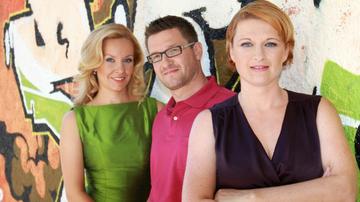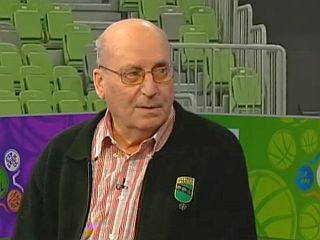
Ivo Daneu was born on 6 October 1937 in Maribor. In the Second World War, his family was deported to Serbia. After the war and their return to Maribor, his father died in 1949. Due to his height (184 cm), exceptional motor skills and the ability to throw (shoot), he was a playmaker and guard. After graduation, he decided to play for the AŠK Olimpija basketball club. Already during his first year in Ljubljana, he became a champion in Yugoslavia. He won six national championships in the fourteen seasons he spent in Olimpija. He played in over 200 international games for the Yugoslavian national team, including three Olympic Games, three world and six European championships. He ended his career victoriously in 1970 by winning the national and world championships. After retiring, he was Olimpija’s coach for one year. In 1972, he became active again and played one season for Rudar club in Trbovlje. Today, he enjoys an active retired life. He plays sports and cards with his friends and travels. His grandchildren are his greatest pleasure. He usually starts his day with a cup of coffee and a newspaper in one of the coffee shops near his home in the centre of the Slovenian capital, which was where we met.
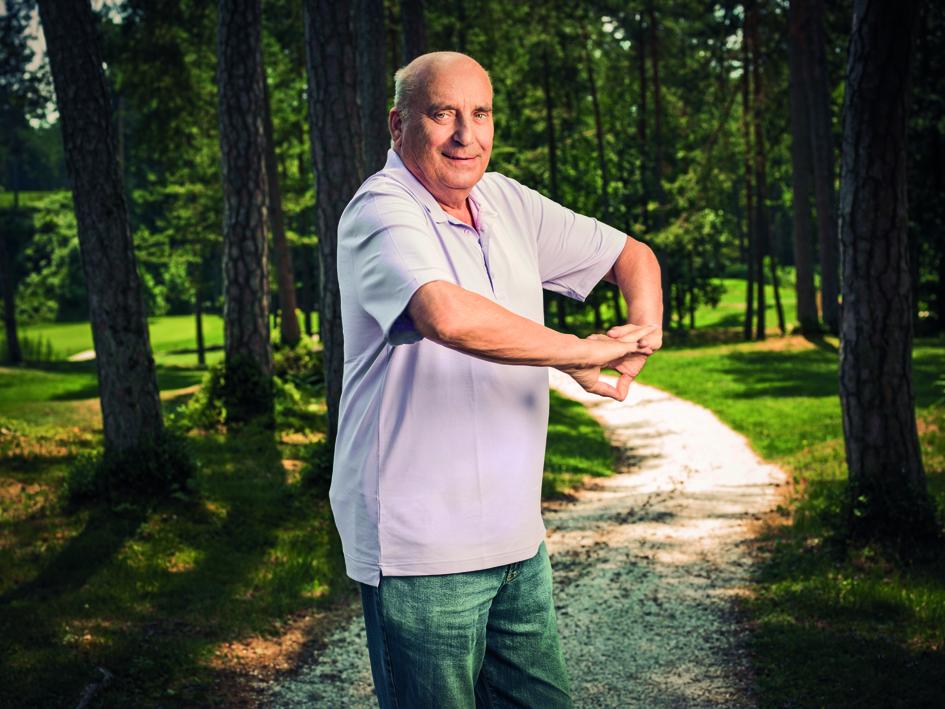
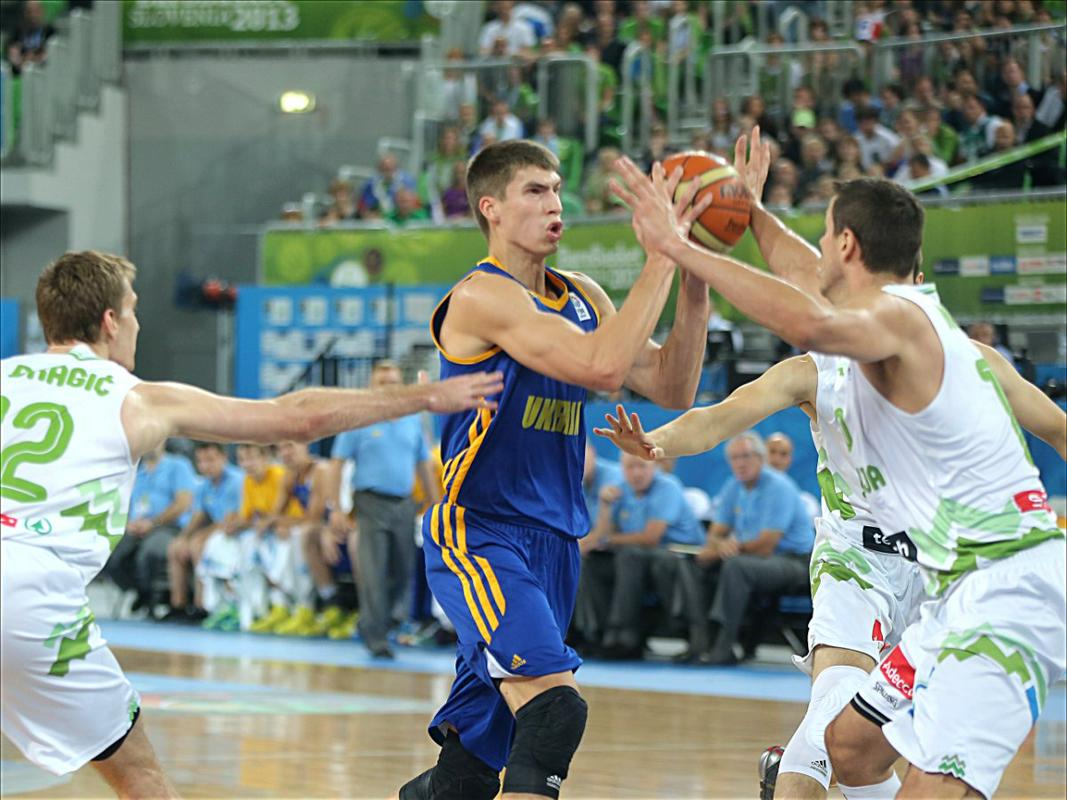
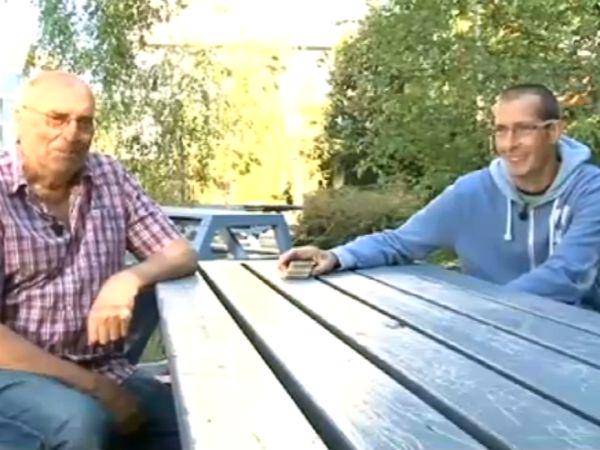
Anyone familiar with the history of basketball would say he is a legend, a great star and an authority. The days of the golden generation are long gone, but Ivo Daneu continues his lifelong mission. He took on the role of ambassador of EuroBasket. In the film, Ljubodrag Simonović says: "Ivo Daneu was the founder of so-called modern basketball...It wasn’t just about competing, winning, achieving good results, but also about developing elements of the game: dribbling, moving around in space, dynamic passes, intelligent play, speed, versatility of moves, etc."
In the interview with Ivo Daneu, we discussed not only his rich career, but primarily an event which is still relevant, EuroBasket.
Why did you decide to play basketball and not another sport?
As a child, I actually wanted to become a tennis player, but my family – my mother was left alone with four children after my father’s death – didn’t have the money, because tennis is a relatively expensive sport. There was a football field close to my home and I started playing football. But I disliked this sport after I accidentally got a hard blow in the head from a ball. A basketball court was also nearby and that gradually became my passion. I didn’t think about other sports after that. I started training with the Polet club in Maribor and later with Branik. I played there until the end of grammar school and then I joined Olimpija.
What are your memories of the so-called ‘golden’ era?
Those were very good times, although I had to find a job very quickly. I first enrolled at the Faculty of Sport. I was already in the national team that year. I remember that the competition was in Poland. And because I had to be absent for five weeks, I went to the faculty administration, but unfortunately they weren’t prepared to grant me such a long absence. So I didn’t finish university because I was forced to choose between basketball and study. And I chose basketball. I was soon permanently employed. So, I went to work and played basketball. But I still managed. Others trained twice a day; I only trained in the evenings.
Basketball experts call you ‘a legend’, ‘a golden boy’. In addition to all your other successes, you are known for your famous throw which won the world title for the Yugoslavian team.
To tell the truth, I was injured at the time. If the competition hadn’t been in Ljubljana, perhaps I wouldn’t have even played. The club management was afraid that if I didn’t play, the spectators would boycott the game. I didn’t play much in the championship due to my injury; although I did play against the USA, but only in the last five minutes. And then in that crucial or necessary moment, I scored.
Such an achievement – for Slovenian basketball players to become world champions – seems almost impossible. Why was this possible then, but is probably not today?
Great credit undoubtedly goes to the management, especially Boris Kristančič. He had a vision that we would be the best. He almost planned it. The coach was law at the time. If a player had to be given the same instructions three times, he was considered a bit stupid. We got the instructions, considered them and worked very hard. It’s true that the competing system back then was different from today. We also played in three groups, which were located in the former republics of Yugoslavia in order to reduce Slovenia’s costs. Only six teams from the qualifiers played in Ljubljana and Yugoslavia as the host state. All teams played against each other. So, when we beat the USA one day before the end of the championship, we were practically world champions. The next game against the Soviet Union was irrelevant. And by the way, we lost that game.
What was the atmosphere like in the team and what were the circumstances then?
There weren’t any disagreements. We were friends and we still socialise with the players who played at that time;but not only with them, with others as well. Sport was highly appreciated in the former Yugoslavia. I’m still warmly welcomed in the republics of the former Yugoslavia. I’ve had the same impression now as ambassador of EuroBasket. I received an invitation from the Montenegrin President, Filip Vujanović, to make a private visit and I was happy to accept it. As ambassador, I also took the opportunity to invite the Montenegrin President to the championship in Ljubljana. Media from all over the former Yugoslavia were present throughout and showed great interest. Honestly, I am already slightly tired (laughs). I also have to say that I was invited to a dinner with the Croatian President, Ivo Josipović. I discussed sports and basketball with both presidents, not politics. Really, I always feel welcome in these countries. And that is nice.
So, the role of ambassador of EuroBasket is ideal for you?
I accepted it with great pleasure. But because English is not my forte, I asked to be the ambassador for the countries of the former Yugoslavia. I communicate more easily in these languages. And because I speak Russian, I also participated in the promotion of EuroBasket in Russia.
What can you say about the Slovenian boys who competed in EuroBasket?
They have quality, absolutely. They’re very combative and aggressive; they’re friends and a good team, but they still lack technical knowledge. They are weak particularly in the centre. All the other teams have four centres and can substitute them. The fact is that the Slovenian guards are quite young, inexperienced and play rather indifferently. The boys played very well at the beginning against Spain, but the inexperience came out against Croatia. They were better throughout the game, but slackened off at the end. They try too many three-point shots. I believe that basketball is played correctly with penetrations, switching positions and well-timed passes. Basketball is a very intelligent and strategic game.
Did the players ask you for any advice?
I didn’t share any in particular; the Slovenian coaches are good and very knowledgeable, so I didn’t interfere at all. You see, not everything depends on the coach. He can control substitutions, but he can’t play defence on the court instead of the players. The victory is always won by the players, if they score or if they block a throw.
How would you assess the teams now after EuroBasket?
This championship was interesting; there were many surprises. A pleasant surprise for us Slovenians was the win against Spain and the bitter disappointment over the much expected win against Croatia. I stress, too expected. It was proven that it was impossible to predict and count chickens before they are hatched. There is an anecdote: A very young friend of mine, a volunteer at EuroBasket, kept asking me who I thought would win individual games and I was always wrong. In the end, I joked and told him to bet the opposite of what I said if he wanted to win. By which I mean to say that the championship was also very interesting because of its unpredictability. Perhaps that was the result of the change of generations, and there were many young players and not, if I may say, so many mature sportsmen.. The Spanish and Germans had rookies, for example. In spite of everything, my favourites were the French and the Spanish throughout. But I couldn’t believe that Russia was out of the championship already after the first round. That really surprised me. I should also mention that, until just recently, Russia had an American on their team. That would have never happened in my days. Mixed teams are very common now.
The President of the Republic of Slovenia has recently awarded you the Golden Order for Services for your outstanding sporting achievements, encouraging younger generations of basketball players and other sportspeople, and promoting Slovenia in the global sporting arena. What does this recognition mean to you?
I was happy to receive it. I was particularly pleased by the fact that President Pahor invited my colleagues from the national team, the golden core from 1970, and my club team mates to the ceremony. In my thank-you speech, I particularly stressed that my successes were not mine alone. In basketball, a single individual cannot win; it is a joint effort and joint achievement. So, I don’t claim this recognition only as an individual. But it is true that I received the award for wider support for sport and basketball.
Do you think that the promotion of Slovenia during EuroBasket was sufficient?
I feel that all the participants worked very hard at the promotion: EuroBasket 2013, the Slovenian Basketball Association, the Government Communication Office of the Republic of Slovenia, and everyone else. Many people worked day and night. You see, it’s always possible to do more, but it’s also important to give recognition. Even more now, when financial resources are limited. Many volunteers participated in this project and I really think that Slovenia did an excellent job. I was happy to see a great number of passionate fans, and many officials and other VIP guests who were attending the games from the beginning. EuroBasket was a great sporting and diplomatic event, and certainly important for Slovenia in every way.
What is your message to the national teams now at the end of the European championship?
I sincerely congratulate all of them, and especially the winners. They were the best; somebody has to be. Congratulations also go to everyone, because the sporting spirit was present throughout. Again, congratulations to everyone.
Tanja Glogovčan, SINFO
Ivo Daneu was born on 6 October 1937 in Maribor. In the Second World War, his family was deported to Serbia. After the war and their return to Maribor, his father died in 1949. Due to his height (184 cm), exceptional motor skills and the ability to throw (shoot), he was a playmaker and guard. After graduation, he decided to play for the AŠK Olimpija basketball club. Already during his first year in Ljubljana, he became a champion in Yugoslavia. He won six national championships in the fourteen seasons he spent in Olimpija. He played in over 200 international games for the Yugoslavian national team, including three Olympic Games, three world and six European championships. He ended his career victoriously in 1970 by winning the national and world championships. After retiring, he was Olimpija’s coach for one year. In 1972, he became active again and played one season for Rudar club in Trbovlje. Today, he enjoys an active retired life. He plays sports and cards with his friends and travels. His grandchildren are his greatest pleasure. He usually starts his day with a cup of coffee and a newspaper in one of the coffee shops near his home in the centre of the Slovenian capital, which was where we met.

























































